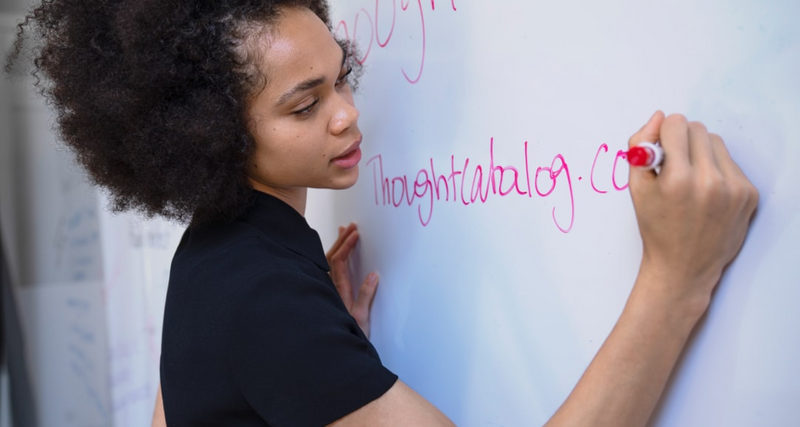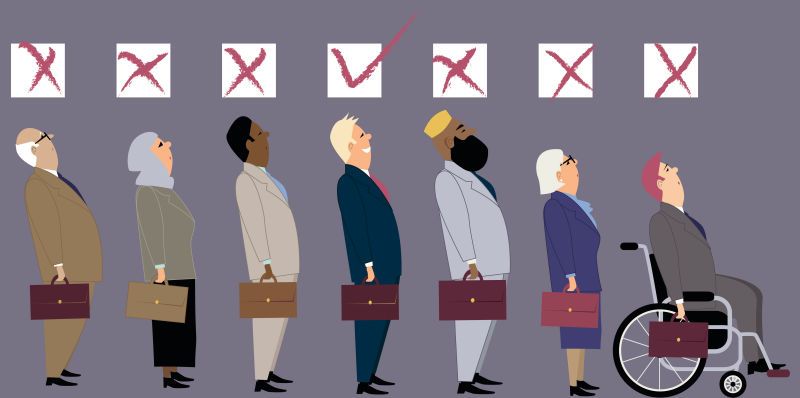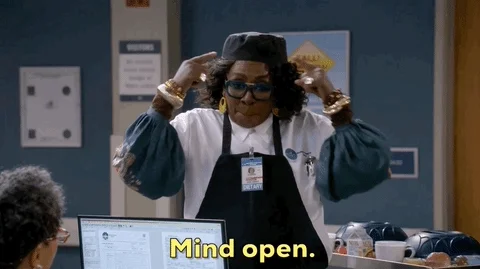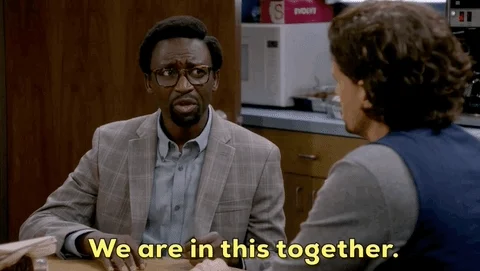Nadya is an executive at an international engineering firm.

During her first big presentation, her fellow executives pick up their phones and look down at their laptops.
As soon as she starts speaking, Nadya's coworkers interrupt and speak over her. Some of her ideas are flat out dismissed, then brought up by somebody else and championed by others.
Nadya is the only woman in the room. She could use an ally in this situation.
Social Barriers
Underrepresented people experience situations like Nadya's in the workplace every day.

We have been told our whole lives that if we work hard then we get what we deserve.
But that isn’t true for everyone.
Some people have to work 10 times harder to get to the same place because of social barriers.
Your gender, race, ethnicity, religion, disability, sexual orientation, socio-economic status, and geography can all be social barriers that influence your opportunities for success.
Allyship
Allyship is about recognizing this imbalance in opportunity and working to correct it. Being an ally means really seeing the person next to us. And recognizing the person who should be next to us.
When we work together to create diverse and inclusive teams, data shows that we will be more innovative, productive, and profitable employees.

Quiz
True or false: an ally is someone who is a member of an underrepresented group who advocates for themself.
Ways To Be An Ally
Pay attention.
It’s our job as allies to listen and learn. It’s okay to make mistakes as long as we keep learning. Give your full attention to your underrepresented co-workers.
Put your phone down, close your laptop, and really pay attention.
Listen.
Underrepresented people are more likely to be interrupted, so just take a step back and listen. If they have a great idea, echo that idea and give them credit.
Include marginalized co-workers in meetings and conversations by asking for their opinion.
Be respectful.
Learn the language your coworkers use to describe their identity. Learn correct gender pronouns.
Know the terms someone uses to describe their disability, ethnicity, or religion. This really matters to people. If you don’t know or aren’t sure, just ask. Listen and learn.
Advocate in small ways.
Don’t be afraid to intervene. If you see that somebody is the only person in the room like them and they're being discounted, do something about it.
Invite underrepresented people to speak. If you're a person with privilege, it's easier for you to advocate. Use that privilege to create change.
Advocate in big ways.
If you hold a position of power, consider mentoring marginalized coworkers. Transform your team into one that's diverse and inclusive.
Make real commitments to create change in your company culture.
Take Action

Your colleagues aren't just your colleagues. They're humans first.
There are millions of people out like Nadya who may feel alone, shut out, and unsupported in the workplace. There are also millions of co-workers who could be potential allies. It doesn’t take much to start.
Being an ally is powerful. When we support one another, we thrive together. And when we thrive, we build better teams, better products, and better companies.
Check out these Bytes to help you be a better ally to your coworkers:
Your feedback matters to us.
This Byte helped me better understand the topic.
